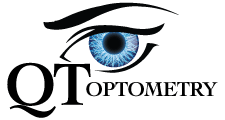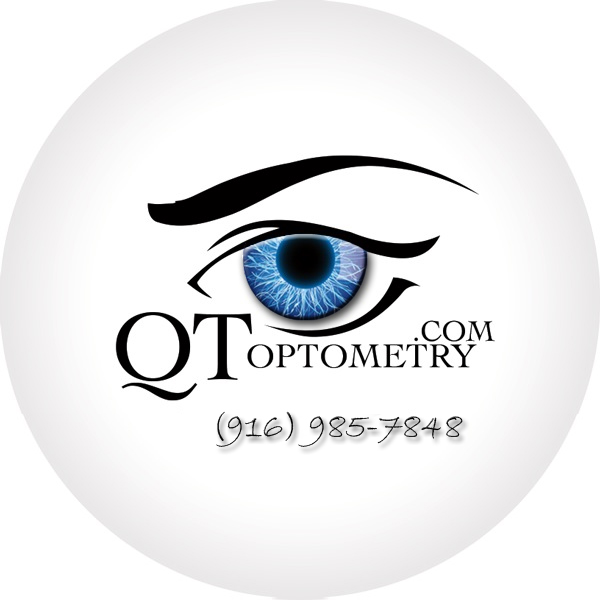What Is Macular Degeneration?
Age Related Macular Degeneration, also known as, AMD or ARMD, is the destruction of the macula area in the eye, and thus, is considered an incurable disease at this point. This small central area of the back of the eye enable you to read, recognize faces, drive, watch television, use a computer, and perform any other visual task that requires the use of fine detail. Once damages occur at or around this area, vision and visual acuity is compromised. AMD is the leading cause of vision loss for older Americans, and because of the aging of the U.S. population, the number of people affected by AMD is expected to increase significantly in the years ahead.
There are two types of macular degeneration:
- Dry or atrophic AMD: consists of approximately 85% to 90% of all cases of AMD.
- Wet or exudative AMD: consist of approximately 10% to 15% of all cases of AMD.
- *Stargardt disease is a form of macular degeneration, and is usually found in young people, and is caused by a recessive gene.
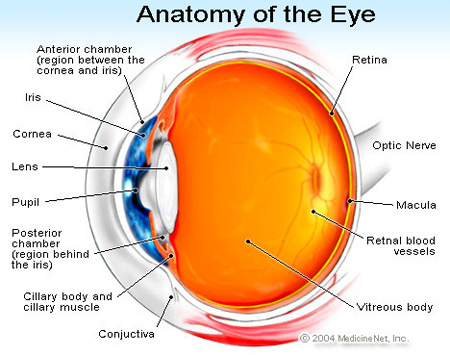



What Causes ARMD?
Macular degeneration is usually associated with the aging process, however, research does indicate a strong genetic component, thus, having a family member with AMD does increase YOUR risk of having macular degeneration; thus, annual wellness evaluation is definitely necessary. Other risk factors for macular degeneration includes:
- Obesity and inactivity
- High blood pressure (hypertension)
- Smoking: Smoking is a major AMD risk factor and was found in one British study to be directly associated with about 25 percent of AMD cases causing severe vision loss. The British Journal of Ophthalmology in early 2006 also reported study findings showing that people living with a smoker double their risk of developing AMD…
- Lighter eye color
- Certain drug side effects
Symptoms and Signs of AMD
AMD usually lead to a slow, painless, and gradual loss of central vision. In rare cases, however, vision loss can be sudden, especially if there are other co-morbidity. Early symptomss of vision loss from AMD may include “shadowy” areas in your central vision and/or an unusually “fuzzy” or distorted vision. This distortion can be viewed and demonstrated with the help of an Amsler Grid. An Amsler grid consists of straight lines, with a black referenced dot in the center. Someone with macular degeneration may see some of the lines/boxes as wavy, blurred, or even missing.
There are three main stages of AMD:
- Early AMD: Regular eye exams are important because there are no symptoms and very little signs, particularly if you have more than one risk factor.
- Intermediate AMD: There may be some symptoms of vision loss. Eye exam are required with specific tests to look for drusen and/or pigment changes in the retina.
- Late AMD: Symptoms of vision loss has become noticeable.
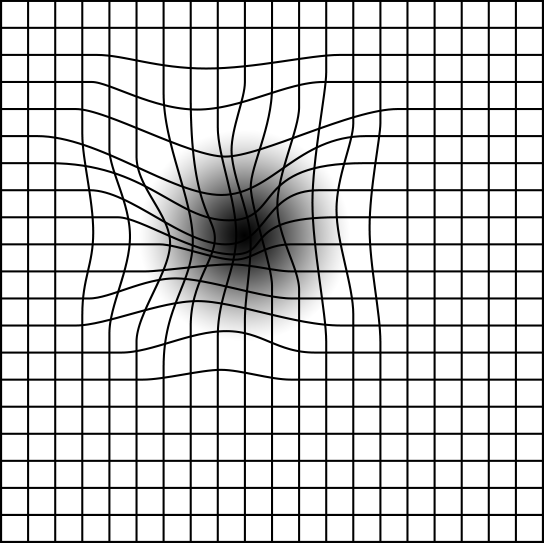

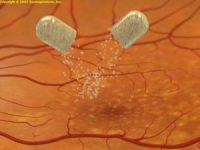

How Are AMD Treated?
There’s no true treatment for AMD, however, there are some treatments that may delay its progression or even to improve vision. Care of AMD is dependent on whether the disease is in its early stage, dry form, or wet form, which can lead to serious vision loss.
- Early/dry stages: Annual evaluation to monitor for progressions, cessation of smoking…immediately, UV protection, and proper nutrition.
- Wet AMD: Treatments are aimed at stopping abnormal blood vessel growth. Lucentis has been shown to improve vision in patients with wet AMD.
- Researches does indicate that nutrition rich in omega-3 fatty acids, lutein, and zeaxanthin has been shown to help prevent and/or reduce the risk of AMD progression.
Frequently Asked Questions About AMD
Diagnosis of macular degeneration is quite a shocker. Education and information is your best ally. Here are some questions that you may consider when talking with Dr. Q if you are diagnosed with AMD:
- Do I have AMD in both eyes?
- What stage/phase is my AMD? Early, intermediate, or advanced stages?
- Do I have the “dry” or “wet” type of AMD?
- Will my eyes get worst?
- Am I legally blind?
- Can I lose my license to drive?
- Is there a treatment for me? Any new treatment on the horizon?
- Can exercise, diet, supplements, and/or lifestyle changes slow/stop progression of AMD?
- Are my children and/or siblings at risk of AMD?
- How often should I have an eye exam?
- Is there a support group or a vision rehab center?
